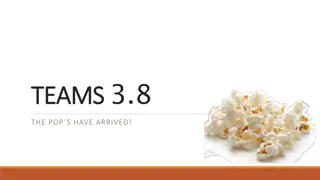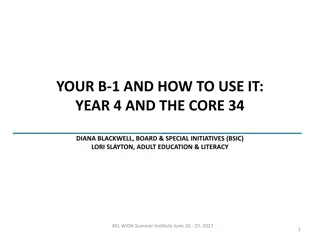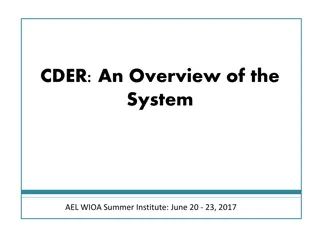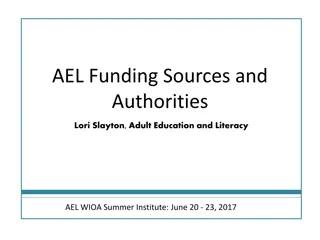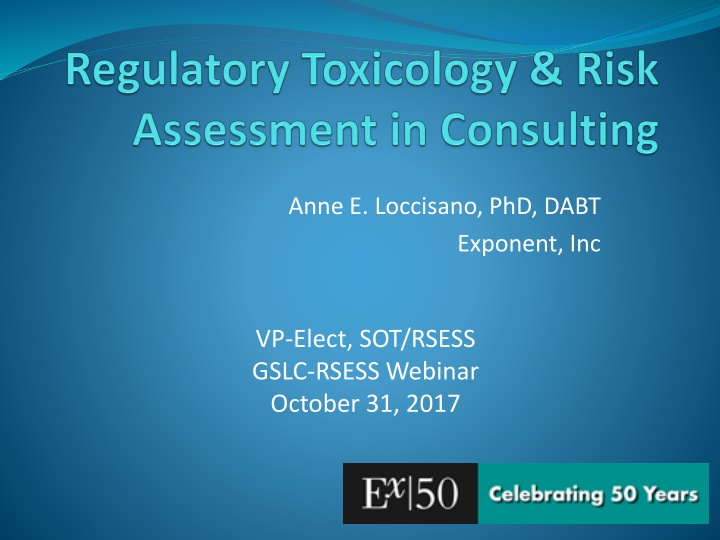
Insights into Regulatory Toxicology and Risk Assessment
Explore the role of regulatory toxicologists in providing science-based advice to various clients in government, industry, legal, and healthcare sectors. Understand the significance of risk assessment and regulatory toxicology in industry and consulting, dealing with exposure assessments and compliance with regulations. Delve into hot topics like organophosphate insecticides and pharmaceuticals, and learn about the dynamic nature of a typical day in consulting for regulatory toxicologists.
Download Presentation

Please find below an Image/Link to download the presentation.
The content on the website is provided AS IS for your information and personal use only. It may not be sold, licensed, or shared on other websites without obtaining consent from the author. If you encounter any issues during the download, it is possible that the publisher has removed the file from their server.
You are allowed to download the files provided on this website for personal or commercial use, subject to the condition that they are used lawfully. All files are the property of their respective owners.
The content on the website is provided AS IS for your information and personal use only. It may not be sold, licensed, or shared on other websites without obtaining consent from the author.
E N D
Presentation Transcript
Anne E. Loccisano, PhD, DABT Exponent, Inc VP-Elect, SOT/RSESS GSLC-RSESS Webinar October 31, 2017
What do regulatory toxicologists do anyway? Broadly, regulatory toxicologists and risk assessors provide science-based advice to government industry attorneys health professionals general public These clients may be different depending on the sector you work in.
What does risk assessment and regulatory toxicology mean working in industry? Perform exposure and risk assessment resulting from use of consumer products Conducting/contracting out various types of studies in order to comply with regulatory (EPA, FDA) guidelines Worked closely with chemists, product developers, other toxicologists, and regulatory oversight (interface with the FDA)
What does risk assessment and regulatory toxicology mean working in consulting? Clients are often: Industry (chemical, pharmaceutical, pesticides, consumer products) Trade groups that represent a particular industry Attorneys (litigation support) My role: Help industry interface with regulatory agencies Perform exposure and risk assessments Provide attorneys with scientific advice and expert witness statements
Broader impacts/hot topics Organophosphate insecticides Perfluorinated compounds Other environmental chemicals and pharmaceuticals Various drugs/pharmaceuticals
What does a typical day look like in consulting? Typical aspects of consulting: Variety lots of it Constant learning process Always interesting! There is really no typical day. On most days plans/priorities change. Need to be flexible
Entry level responsibilities and learning on the job Entry-level responsibilities: General toxicology/biology knowledge Some knowledge of application of risk assessment principles Ability to work on a team Learning on the job: Industry-specific practices in risk assessment Industry-specific regulatory guidelines
How can you start preparing yourself for a career in regulatory toxicology? If you work in an academic lab, understand how your work contributes to/impacts ecological and/or human health risk assessment. Gain practical experience and understand risk assessment. Courses at your school or CE courses at SOT Fellowships such as ORISE Consider obtaining board certification as soon as you are eligible. Communication skills
Resources for more information Participate in the Chat with an Expert Program through SOT RSESS website: https://www.toxicology.org/groups/ss/RSESS/index.asp RASS website: https://www.toxicology.org/groups/ss/RASS/index.asp SOT website: https://www.toxicology.org/groups/ss/ART/index.asp Read through the TOC of Regulatory Toxicology & Pharmacology: https://www.journals.elsevier.com/regulatory- toxicology-and-pharmacology

